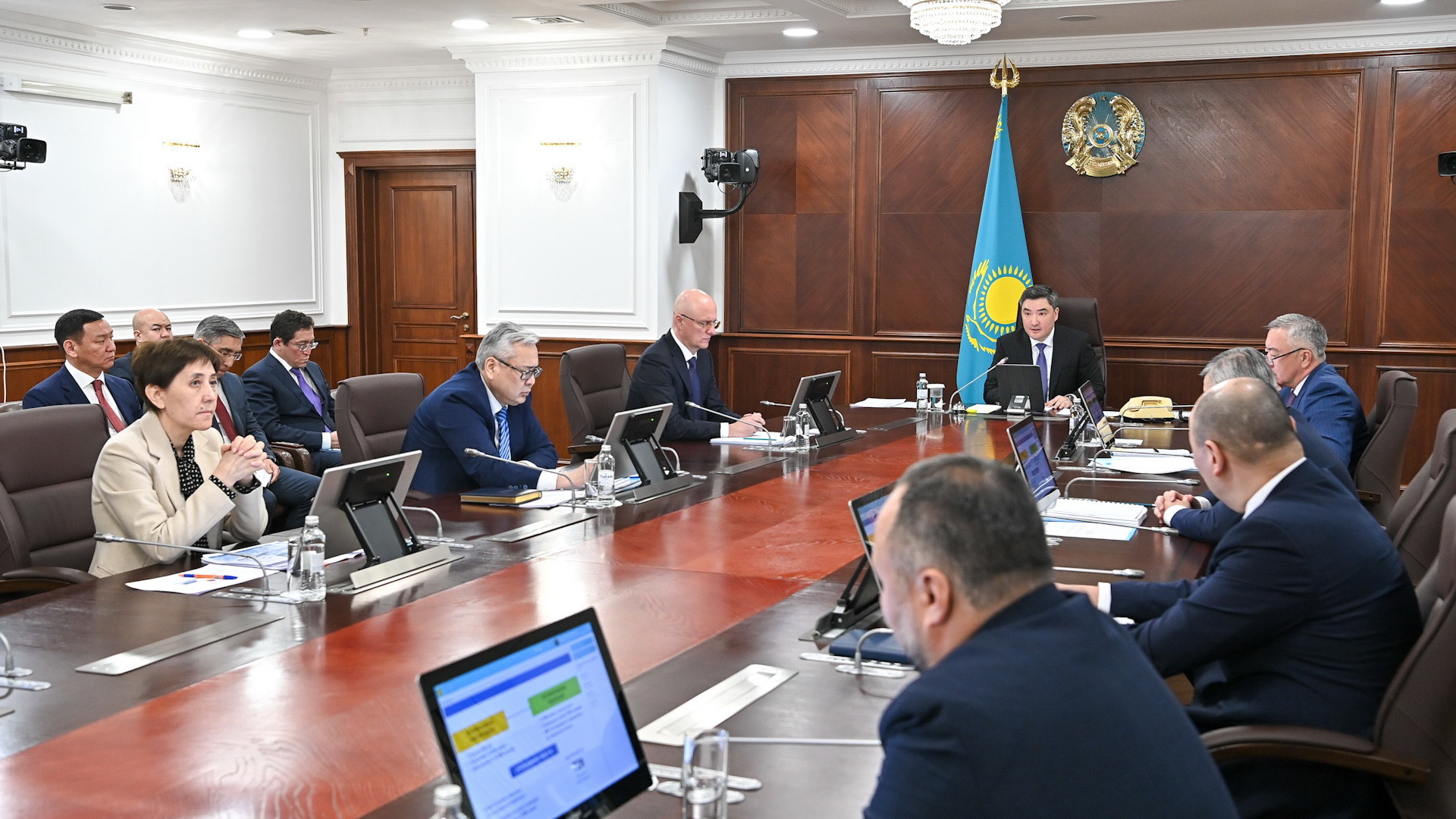ASTANA – Prime Minister Olzhas Bektenov signed a resolution that approved amendments to provide additional compensation payments of up to 553,800 tenge (US$1,241) to flood victims. This was announced at an April 23 government meeting.

Olzhas Bektenov chairs an April 23 government meeting. Photo credit: primeminister.kz
Nearly 11,000 families received one-time payments worth 369,200 tenge (US$822). With the additional compensation, people will be able to purchase essentials lost in the floods, including refrigerators, tables, chairs, dishes, and clothes.
“I appeal to citizens and urge everyone to remain calm. No one will be left without help. All issues are under the president’s personal control and my control,” Bektenov stated, assuring that entrepreneurs’ losses will also be compensated.
According to the Ministry of Emergency Situations, the flood situation is stable in the Abai, Akmola, Karagandy, Kostanai, Pavlodar, and Ulytau Regions. The water level in local rivers is gradually decreasing, and there is no threat of flooding in populated areas in these regions.
Flood elimination efforts continue in the Atyrau, North and West Kazakhstan Regions. The situation in western regions was complicated by the release of water from the Iriklinsky reservoir in Russia into the Zhaiyk River. Water inflows from the Akmola Region come to northern areas.
Today, over 5,000 residential buildings, more than 16,000 country houses, 1,000 courtyard areas, and 91 buildings remain flooded. Since the beginning of flood relief operations, about 11.6 million cubic meters of meltwater have been pumped out, and more than five million bags have been placed.
Over 119,000 people were evacuated from flood zones in advance, including more than 44,000 children.
Bektenov instructed the ministry and regional administrations to continue enhanced monitoring of the flood situation and, if necessary, ensure a prompt response and evacuation of the population. He directed the Ministry of Ecology to increase the number of gauging stations on reservoirs and rivers and the Ministry of Industry and Construction to establish an operational group to coordinate local efforts to restore housing, social and engineering infrastructure.
